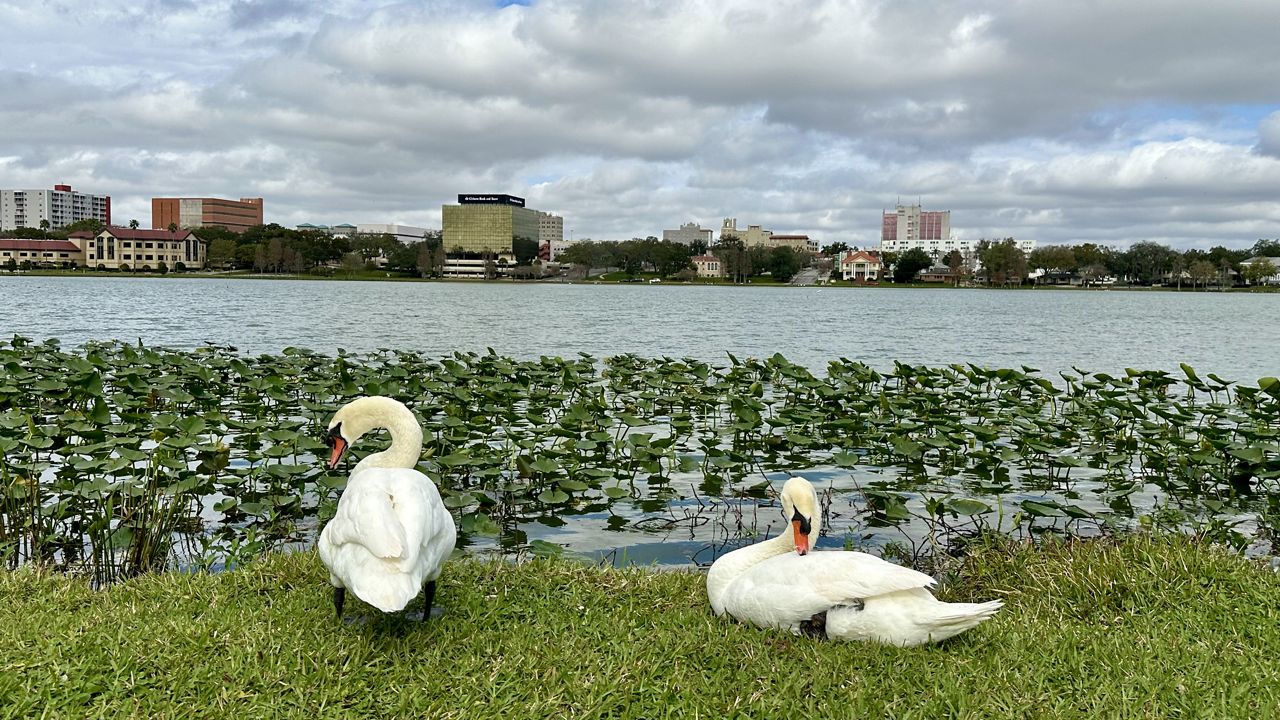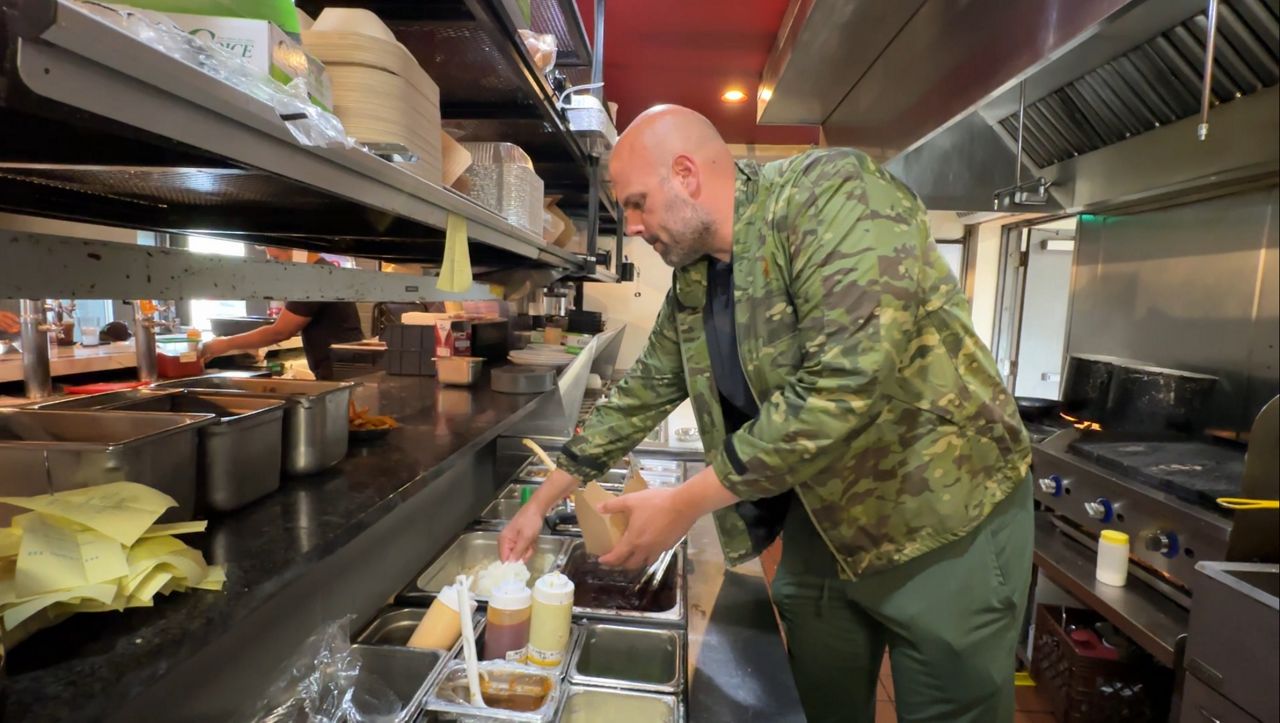LECANTO, Fla. — Patience is rarely a virtue when it’s feeding time on the farm.
Edwin Joseph wouldn’t have it any other way. He not only loves farming but loves his holistic style of farming at Lecanto Pastured Poultry.
“It’s really predicated on the use of other animals,” Joseph said. “Like the goats or the sheep or the donkeys.”
Joseph is a regenerative farmer, which essentially means he uses the natural resources of his animals to fertilize his soil, kill parasites and sort of curate a sustainable style of living.
He lives on about ten acres of land in Lecanto and runs Lecanto Pastured Poultry, primarily dedicated to the meat of chickens.
“Every day you just drag them basically about the pasture and you move them on fresh grass,” Joseph said when discussing the enclosures the chickens are in that he uses to help fertilize his farm. “That way, you know, they can eat the bugs and the grass and all that kind of stuff. They fertilize and then all the other animals that come behind them.”
While most of the business is chicken meat, he sells and delivers eggs, too.
“We usually get anywhere from 10 to 12 dozen a day,” he said.
And business has been going well. Not only because he sells fresh products from chickens that aren’t confined to tight spaces, but because egg prices at grocery stores have been extraordinarily high.
“Honestly, any time there’s a crisis like that, that happens. It turns out really good for us,” Joseph said. “So that just brings in more of a customer base.”
According to the USDA, in the last two months of 2024 alone, more than 17-million egg-laying hens died from bird flu.
In February, they reported wholesale prices rose to roughly $8 a dozen.
But in their March report, that number has dropped back down to $3.
With so many egg-laying hens dying from the bird flu, Joseph says it has taken time for the market to come back down to Earth.
“It takes six months to get another chicken to lay eggs,” he said. “So that’s about the time frame that, you know, that we’re seeing. So, what happens if they cull the whole flock and then they have to wait six months to get the new ones? Then, you know, it takes time for all that stuff to happen.”
For Lecanto Pastured Poultry, according to Joseph, their approach to farming has been positive for his flock, where none of his many chickens have gotten sick from the avian flu.
“Farming is still farming,” Joseph said. “So, there’s still difficulties. You know, obviously we all know with the economy lately, it hasn’t been the greatest thing the last couple of years. But we’ve made it through, and we continue to grow. And, you know, it’s been, overall, it’s been good.”
All it takes is a little patience.
Despite stronger numbers in pricing, the USDA reports the avian flu has killed more than 30 million egg-laying hens so far this year.












